
The 26 cantons of Switzerland are the member states of the Swiss Confederation. The nucleus of the Swiss Confederacy in the form of the first three confederate allies used to be referred to as the Waldstätte. Two important periods in the development of the Old Swiss Confederacy are summarized by the terms Acht Orte and Dreizehn Orte.
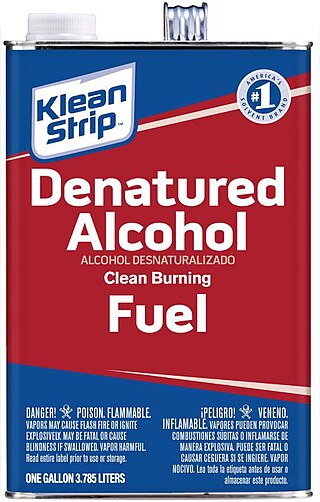
Denatured alcohol, also known as methylated spirits, metho, or meths in Australia, Ireland, New Zealand, South Africa, and the United Kingdom; and denatured rectified spirit is ethanol that has additives to make it poisonous, bad-tasting, foul-smelling, or nauseating to discourage its recreational consumption. It is sometimes dyed so that it can be identified visually. Pyridine and methanol, each and together, make denatured alcohol poisonous; and denatonium makes it bitter.

The Alcohol and Tobacco Tax and Trade Bureau, statutorily named the Tax and Trade Bureau and frequently shortened to TTB, is a bureau of the United States Department of the Treasury, which regulates and collects taxes on trade and imports of alcohol, tobacco, and firearms within the United States.

The United States Customs Service was a federal law enforcement agency of the U.S. federal government. Established on July 31, 1789, it collected import tariffs, performed other selected border security duties, as well as conducted criminal investigations.

United States Customs and Border Protection (CBP) is the largest federal law enforcement agency of the United States Department of Homeland Security. It is the country's primary border control organization, charged with regulating and facilitating international trade, collecting import duties, as well as enforcing U.S. regulations, including trade, customs and immigration. CBP is one of the largest law enforcement agencies in the United States. It has a workforce of more than 45,600 federal agents and officers. It is headquartered in Washington, D.C.
Rectified spirit, also known as neutral spirits, rectified alcohol or ethyl alcohol of agricultural origin, is highly concentrated ethanol that has been purified by means of repeated distillation in a process called rectification. In some countries, denatured alcohol or denatured rectified spirit may commonly be available as "rectified spirit", because in some countries the retail sale of rectified alcohol in its non-denatured form is prohibited.

Switzerland is not a member state of the European Union (EU). It is associated with the Union through a series of bilateral treaties in which Switzerland has adopted various provisions of European Union law in order to participate in the Union's single market, without joining as a member state. Among Switzerland's neighbouring countries, all but one are EU member states.

American whiskey is whiskey produced in the United States. American whiskeys made from mashes with at least 51% of their named grains include bourbon whiskey, rye whiskey, rye malt whiskey, malt whiskey, wheat whiskey, Tennessee whiskey, and corn whiskey.
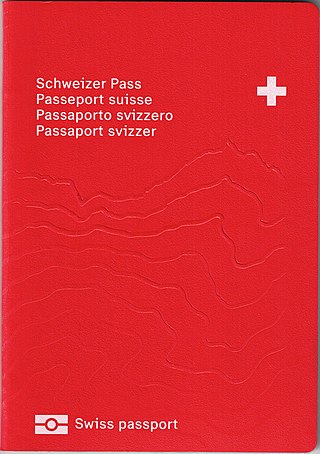
A Swiss passport is the passport issued to citizens of Switzerland to facilitate international travel. Beside serving as proof of Swiss citizenship, they facilitate the process of securing assistance from Swiss consular officials abroad.
The Federal Office of Police of Switzerland is subject to the Federal Department of Justice and Police. It is responsible for the coordination between cantonal police corps and between Swiss and foreign police forces. It also controls the Swiss internal intelligence agency, Dienst für Analyse und Prävention prior to being trasferred to the Federal Department of Defence, Civil Protection and Sport in 2008. and investigates organised crime, money laundering and terrorism.

The federal administration of Switzerland is the ensemble of agencies that constitute, together with the Swiss Federal Council, the executive branch of the Swiss federal authorities. The administration is charged with executing federal law and preparing draft laws and policy for the Federal Council and the Federal Assembly.
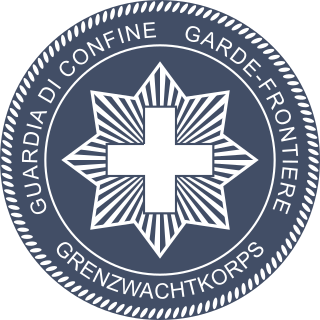
The Swiss Border Guard, known as the Swiss Border Guard Command was a federal law enforcement agency, which acted as both the border guard and customs service for Switzerland. It was a uniformed and armed section of the Federal Customs Administration, which is attached to the Federal Department of Finance. It was the largest civilian security agency on a federal level.
Taxes in Switzerland are levied by the Swiss Confederation, the cantons and the municipalities.
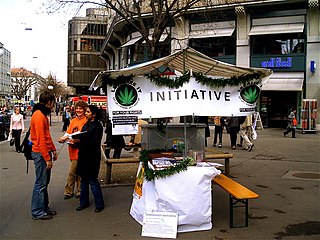
Cannabis in Switzerland is illegal, though minor possession was decriminalised to a fine in 2012. Several cantons began to allow adults to cultivate and use cannabis in 2012, but this was struck down by federal courts. In 2016, four cities stated they were looking into establishing pilot cannabis clubs. The number of cannabis users in Switzerland is estimated to be around 500,000 among a population of 8 million.

Diplomatic relations between Italy and Switzerland have traditionally been close and are currently governed by a complex set of treaties.

Social customs and laws concerning drinking alcohol in public vary significantly around the world. "Public" in this context refers to outdoor spaces such as roads, walkways or parks, or in a moving vehicle. Drinking in bars, restaurants, stadiums, and other such establishments, for example, is not generally considered to be "in public" even though those establishments are open to the general public. In some countries, such as Norway, Poland, India and Sri Lanka, some states in the United States, as well as Muslim-majority countries where alcohol is legal, public drinking is almost universally condemned or outlawed, while in other countries, such as Portugal, Spain, Germany, the United Kingdom, New Zealand, Japan, Finland and China, public drinking is socially acceptable.
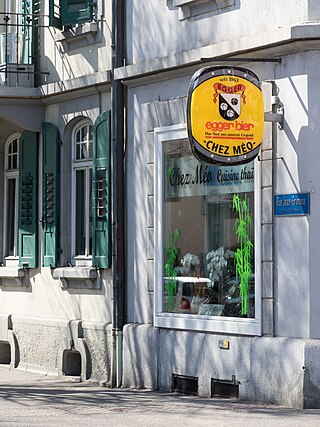
Switzerland has a long tradition of brewing, with significant domestic beer production and a growing craft brewing sector.

Federal referendums were held in Switzerland on 13 February, 15 May and 25 September 2022. Swiss referendums take three forms: popular initiatives, which are citizen proposals to create a new law and require 100,000 valid signatures on a petition to get on the ballot; facultative or optional referendums, which are citizen proposals to approve or reject a piece of existing law and require 50,000 valid signatures on a petition to get on the ballot; and mandatory referendums, which are required to revise the constitution, join an international organization or introduce emergency federal legislation for over a year.

The Federal Office for Customs and Border Security (FOCBS) is a federal agency of the Swiss Confederation. It is an office of the Federal Department of Finance.

The Alcohol Act, is a Swiss federal law that regulates the manufacture, distribution, acquisition and consumption of alcoholic beverages. It was introduced in 1933 and is based on articles 105 and 131(1)(b) and (3) of the Swiss Constitution.

















